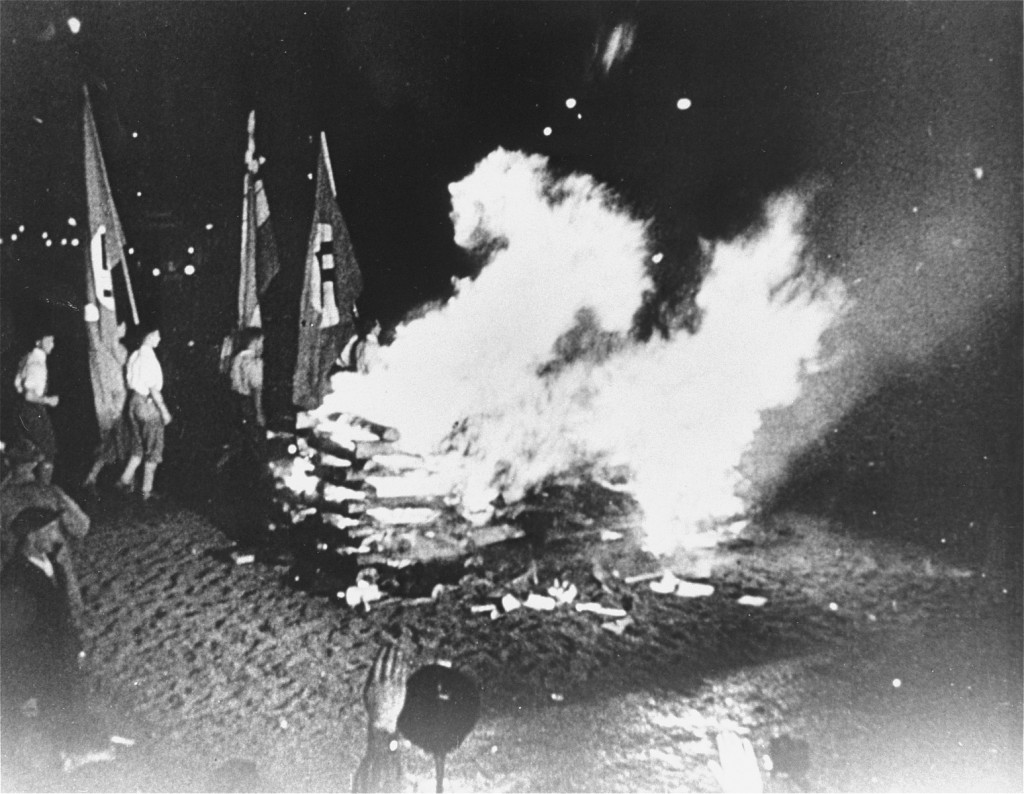
Richard Nikolaus Coudenhove-Kalergi
In 1933, Nazi students at more than 30 German universities pillaged libraries in search of books they considered to be "un-German." Among the literary and political writings they threw into the flames were the works of Richard Nikolaus Coudenhove-Kalergi.
Excerpt
Is it possible that on the small European peninsula, twenty-five states live coast to coast in international anarchy, without a similar state of affairs, leading to the most terrible political, economic, and cultural catastrophe? Divided Europe leads to war, oppression, misery; united Europe leads to peace and prosperity.
—Pan Europa, Richard Nikolaus Coudenhove-Kalergi, 1923
Which of Richard Nikolaus Coudenhove-Kalergi's Works were Burned?
All works published before May 1933
Who was Richard Nikolaus Coudenhove-Kalergi?
Count Richard Nikolaus Coudenhove-Kalergi (1894-1972) was founder of the "Pan-Europe" movement. Of Dutch, Greek, Bohemian, and Japanese descent, his parents had met while his father served as Austrian ambassador to the court of Japan. Coudenhove-Kalergi studied philosophy and history in Vienna, receiving a doctorate in 1916. He published Pan Europa in 1923, marking the foundation of the Pan-European movement. This movement aimed to collect the nation states of Europe into a formal political union.
In 1926, the first Congress of the Pan-European Union met in Vienna, and the 2,000 delegates elected Coudenhove-Kalergi president of the Central Council. The Nazis attacked Coudenhove-Kalergi even before their rise to power. The Nazi "house organ," the Eher Publishing House, devoted an entire booklet to attacking him; Hitler had different plans for uniting Europe. Coudenhove-Kalergi had to flee his native Austria in 1938, seeking asylum first in France, then in the United States. All of his works published before May 1933 were thrown into the flames during the book burnings.
Coudenhove-Kalergi returned to Europe in 1947 and continued to work for a European union.
Critical Thinking Questions
If Jews were the principal target during the Holocaust, why were books written by non-Jewish authors burned?
How did the German public react to the book burnings? What were some of the reactions outside of Germany?
Why do oppressive regimes promote or support censorship and book burning? How might this be a warning sign of mass atrocity?

